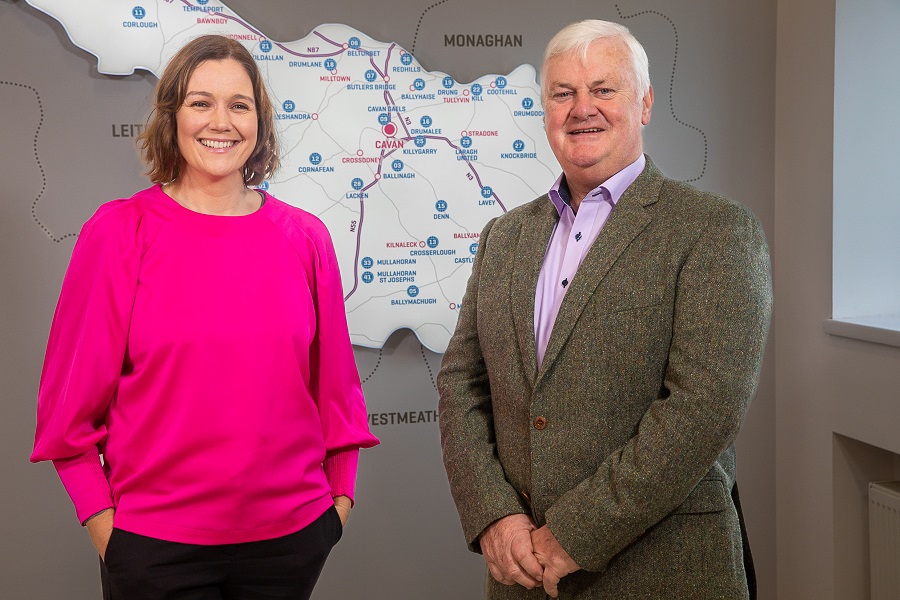GAA presenter Gráinne McElwain will swap championship action for a step into history next week as host of a new Irish language documentary to be screened on RTÉ.
The show, which will be broadcast on Thursday 10.15pm on RTÉ1, explores how the GAA across Ireland helped to heal and bridge the bitter divisions created by the Civil War, 100 years ago.
The Civil War tore Ireland apart. Families were ripped in two, brothers turned against brothers and communities were irreparably damaged. It impacted all aspects of life in Ireland, but unlike other national organisations, the GAA refused to split during these years of division.
During the period of 1914-1921, the GAA embodied the emergence of a new, radical and culturally aware Ireland which was keen to break free from the shackles of British rule.
Those who were at the cutting edge of the new revolutionary movement were also those who helped forge the GAA into a national organisation with a club in almost every parish. Therefore, when the revolutionary movement split, it impacted heavily on the GAA.
McElwain, a native of Monaghan, unpicks the fascinating story of how the GAA managed to stay the course and emerge as a vehicle for reconciliation and healing which has enabled it to grow to become the organisation we know today.
She travels the length and breadth of the country to explore the rivalries which continue to exist between certain GAA clubs, some 100 years on. Using the framework of the Association she examines rifts and hostilities of the past and discovers how, despite the enmity, the GAA has had a remarkable healing influence in counties north and south.
This reconciliation is demonstrated through one particular post-Civil War Kerry team which included Republican volunteers and a Free State officer. Some of the worst atrocities were in Kerry – Knocknagoshel, Ballyseedy, pro-treaty against anti-treaty.
Yet despite the brutality of the war, Con Brosnan, a Free State officer, was made captain of the Kerry football team by way of the most incredible of gestures from his anti-treaty team-mate, John Joe Sheehy. They fought each other during the week, but put their differences aside to represent Kerry, with Brosnan arranging safe passage for Sheehy so that he could line out to play alongside him.
One of the most striking aspects of the film is how the Civil War impacted on the Association in the six counties, where it wasn’t fought. As an Ulsterwoman, Gráinne is keen to unpick the impact this bloody period of history had on her neighbours.
The intense rivalry which exists between Belfast clubs O’Donovan Rossa and St. John’s has its roots in the Civil War. Rossa founding member, Joe McKelvey, was executed by a Free State firing squad in Mountjoy Jail, whilst early St. John’s teams included former Free State army officers.
Gráinne will also look at how the Civil War impacted on the naming of trophies. For example, the South Derry football trophy, the Larkin Cup, is named in memory of Ballinderry native, Sean Larkin, who was executed by the Free State on 14 March 1923 at Drumboe in County Donegal. And she examines why, still to this day, there is no cup or club commemorating either Michael Collins or De Valera.
The programme explores how the opening of Cavan’s Breffni Park during the worst ravages of the war brought pro-treaty and anti-treaty sides together, all sharing a platform with the then President of the Association.
Ré Réabhlóide discovers how the GAA helped to heal the very bitter divisions of a fledgling nation, taking the strain and trauma through the years of strife and violence, to allow former protagonists to come together. But it is the value that ordinary people attached to the games – as a spectacle, as an affirmation of local identity, as a social event – that Gráinne finds is the key to understanding why the GAA held firm in a time of major upheaval.
The programme is an Imagine Media Production for RTÉ, with support from NI Screen’s Irish Language Broadcast Fund
Receive quality journalism wherever you are, on any device. Keep up to date from the comfort of your own home with a digital subscription.
Any time | Any place | Anywhere












